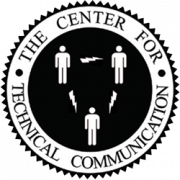As a chemical engineer, I’ve spent a lot of time hanging out with, observing, listening to, and working with fellow engineers. And I’ve been writing B2B copy for decades. Based on this experience, here’s what I’ve observed about marketing B2B products and services to engineers, scientists, IT professionals, programmers, and other techies:
- A lot of techies snub and look down their noses at non-techies. In college, these non-techies are likely to be liberal arts majors. In the business world, they often include marketing and sales professionals.
- Many engineers see their work as more difficult, and therefore requiring greater intelligence, than marketing, sales, or management. As a result, techies may feel they are smarter than marketers.
- Engineers often assume that both senior management and marketing staff know little or nothing about industrial equipment, or its basic technology and operating principles. For this reason, they may be highly skeptical of the content and copy you or your company puts out.
- Engineers also look down their noses at marketing. They see it as an unwholesome mental chore and distasteful practice. So to them, marketing content is far less credible than purely “technical” information – the kind of data they might hear, for instance, at a presentation by an engineer speaking at a meeting of their professional association.
- The more promotional, hyped-up, and like a consumer ad your B2B copy sounds, the more likely engineers are to reject it out of hand, based simply on the negative perception that you are making a “sales pitch” rather than delivering useful technical content.
- Engineers believe that websites and other marketing channels for industrial equipment should focus strongly on features and specifications. And that most other content — including branding, messaging, value proposition, and USP — are unnecessary, extraneous, and a waste of their time.
- Technical buyers operate under the delusion that they make purchase decisions only with their logical minds, based on evaluation of facts, graphs, charts, diagrams, and numbers. They either are highly skeptical of — or else totally disbelieve – that an engineer or technician could possibly be influenced by emotional appeals.
- Writing style and word choice are of two sides of the B2B copywriting coin. On the one hand, technical buyers understand technical terminology. And when we use it to communicate with them, they feel as if our copy is speaking to them peer-to-peer. That helps boost our selling power, because people prefer buying from people they like. And people generally prefer people who are like them.
- On the other hand, all copy — both B2B and B2C — should be clear, crisp, and concise. It should be technical enough to inform and persuade the most knowledgeable experts. But also easily understood by all your prospects, even the less experienced. In four years of writing for the industry, I have never heard someone say about my B2B copy, “This is too easy to read.”
- Engineers especially are visually oriented. So if you are writing about a process, be sure to include a process diagram. Explaining a procedure? Show a flow chart. Talking about your pelletizing machine? Show the pellets.
- If you need to present multiple pieces of data, put them in a table. Engineers believe the British scientist Lord Kelvin, who says, “When you can measure something, and express it in numbers, then you know something about it.”
- A rule of writing popular science for the general public is that for each equation you include in your article, you will lose 10% of your readership. But engineers and scientists like equations. Mathematics is a familiar language for them. So marketing writers should embrace math, not shy away from it.



 Robert Bly
Robert Bly


















